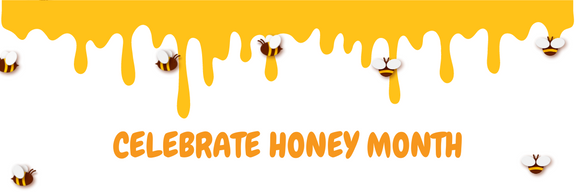THE MANY HEALTH BENEFITS OF EATING HONEY 🧡
Honey is filled with essential vitamins, nutrients, and enzymes that keep your body strong and provide energy. The level of antioxidants in honey is similar to that of spinach, oranges, apples, and strawberries. Honey also has antibacterial properties thanks to its pinocembrin content and has been used for medicinal purposes for ages. It can be used to treat cuts and burns, as well as infections. It can also aid in the treatment of stomach ulcers and improve brain function.BUZZING TO LEARN SOME HONEY FACTS? 🐝
- Honey contains 80% naturally occurring sugar and 20% water.
- You can eat only honey if you want, as it contains all the ingredients you need to stay alive, including water.
- Honey comes in many different shades and colours and the darker it is, the higher its antioxidant levels are.
- It takes up to 4 million flowers and 770 bees travelling for more than 88,000 km to make one kg of honey.
- One honey bee can only produce 1/12 teaspoons of honey throughout its lifetime. To do this, the bee must collect nectar from about 50 to 100 flowers on each trip out of the hive.
- Although there are 20,000 recorded species of bees in the world, only a small fraction can make honey.
- Honey is the only food that is made by insects and consumed by both the insects that make it and us humans.
- Honey is not recommended for people with diabetes or for babies because of the risk of infant botulism.
View this post on Instagram
View this post on Instagram
 https://blog.froothie.com.au/recipes/whole-wheat-honey-rolls/
https://blog.froothie.com.au/recipes/whole-wheat-honey-rolls/




